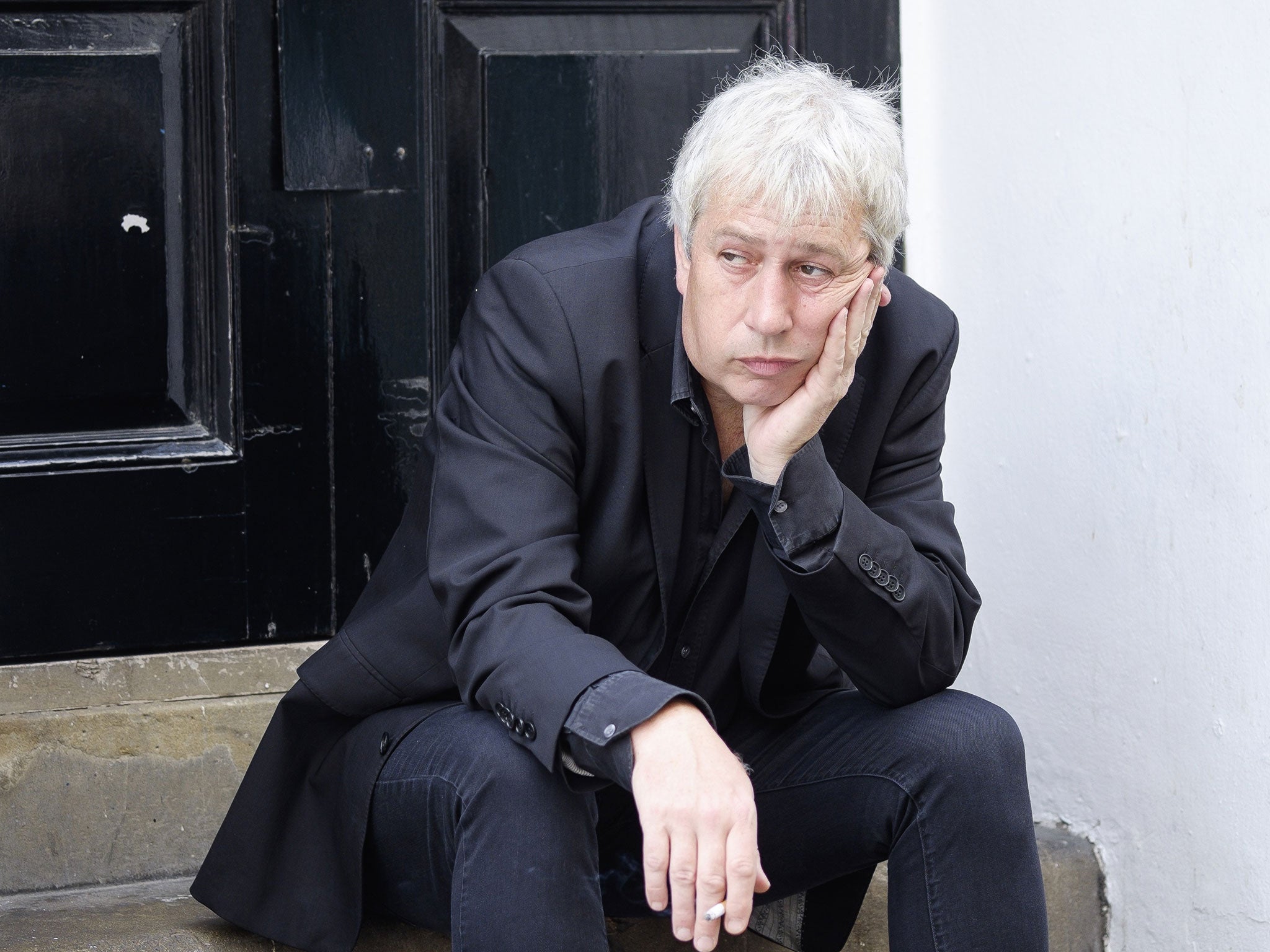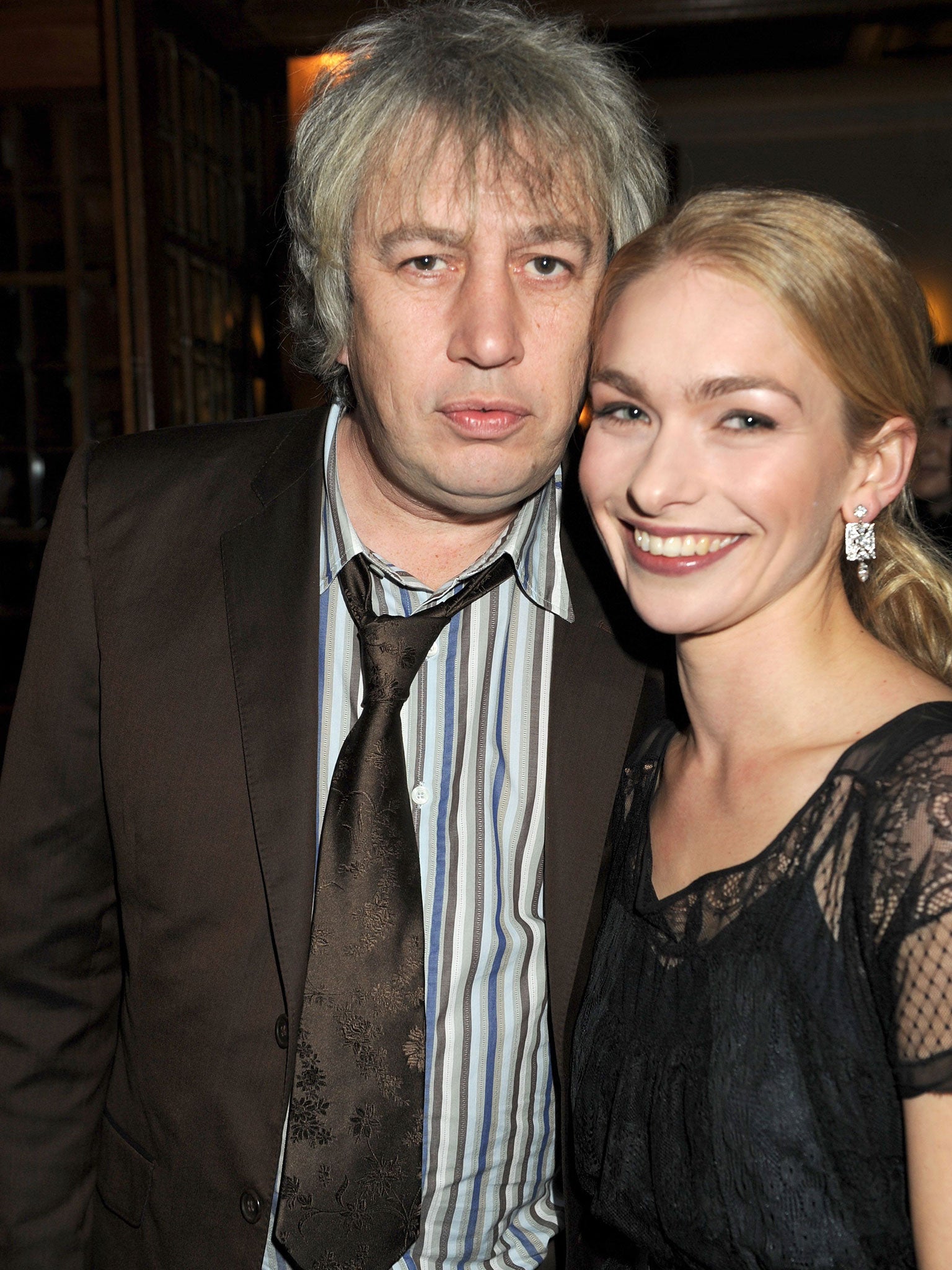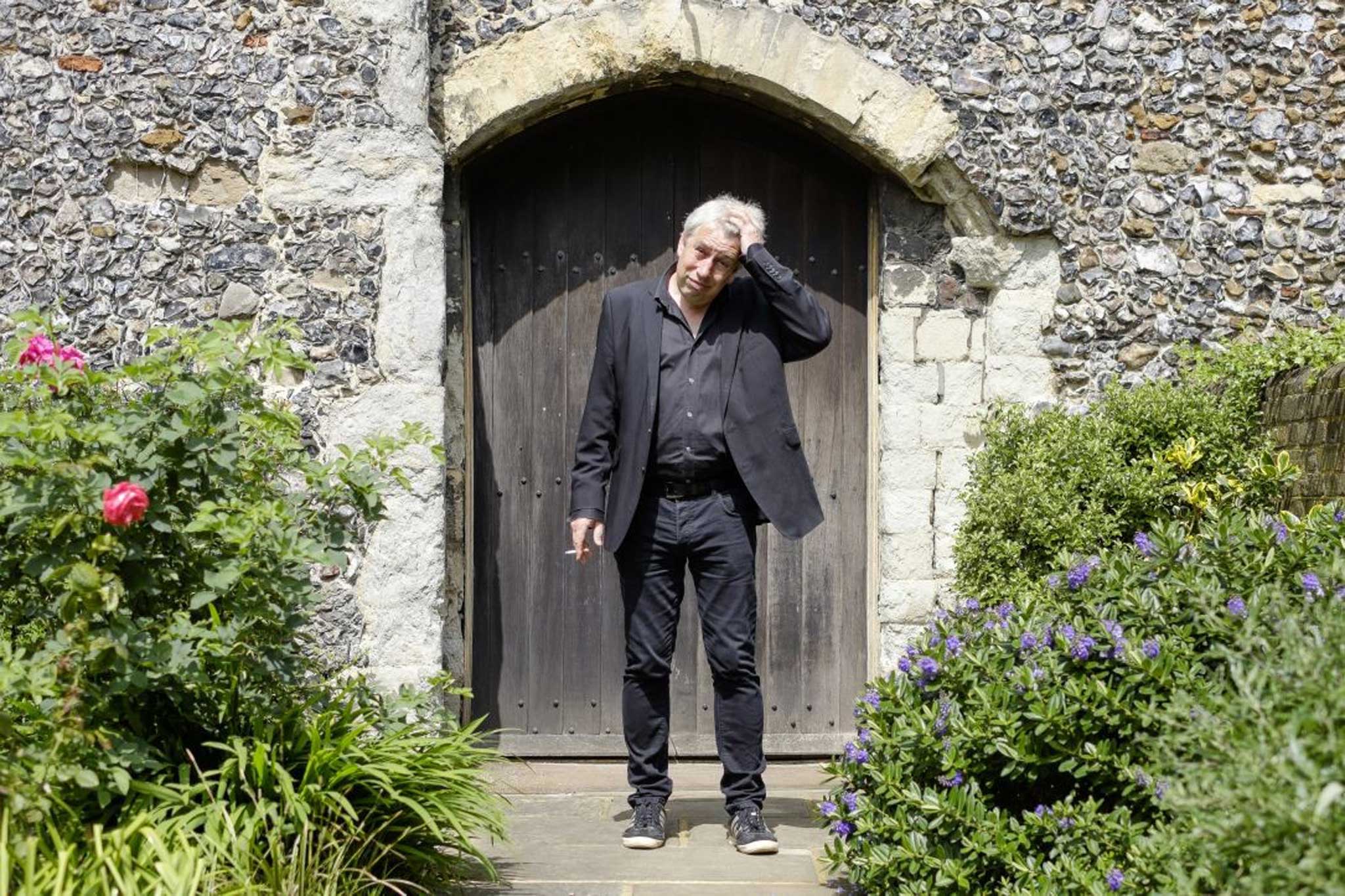Rod Liddle gives his critics plenty of reasons to dislike him - but why does he seem to loathe himself so much?
His eventful journey from working-class Middlesbrough to star editor of the Today programme to hatchet-man columnist for the right-wing media – garnished with a colourful private life and accusations of racism – guaranteed that his semi-autobiographical new book would cause a fuss

Your support helps us to tell the story
From reproductive rights to climate change to Big Tech, The Independent is on the ground when the story is developing. Whether it's investigating the financials of Elon Musk's pro-Trump PAC or producing our latest documentary, 'The A Word', which shines a light on the American women fighting for reproductive rights, we know how important it is to parse out the facts from the messaging.
At such a critical moment in US history, we need reporters on the ground. Your donation allows us to keep sending journalists to speak to both sides of the story.
The Independent is trusted by Americans across the entire political spectrum. And unlike many other quality news outlets, we choose not to lock Americans out of our reporting and analysis with paywalls. We believe quality journalism should be available to everyone, paid for by those who can afford it.
Your support makes all the difference.In 2004, at the height of the media maelstrom that followed Rod Liddle's decision to leave his wife on their honeymoon to be with a woman half his age, a tabloid newspaper rang the doorbell of the flat where the new couple were hiding out.
"They got the wrong buzzer, they were trying to get our neighbours," Liddle remembers. "And they said, 'You've got a man called Rod Liddle living next door to you.' So I said" – he adopts a thick Eastern European accent – "'Who Rod Liddle? What you talking about?' And they said, 'You have to look out for him. Got a young bint with him and he looks like a tramp.'"
He laughs and takes a sip from his pint.
It's an archetypal Liddle anecdote: rueful, self-deprecating, incidentally satirical of foreigners, and carried along by a battered and amused sense of defiance. Pride, even, or a sort of satisfaction that, whatever else, life – which has taken him from a working-class Middlesbrough childhood to the editorship of the Today programme to fame and fortune as a columnist – hasn't been dull. At 54, he says in his new book, he is a bit knackered, unable to summon the vigour of old. But then he adds: "Truth be told, I feel a greater kinship now with myself as an unwashed, dissolute, gobshite 16-year-old, full of piss and vinegar and half-arsed rebelliousness, than I do with the supine me at any later stage in life."
For a professional controversialist, this feels about right. A decade on from that run-in with the tabloids, he's sitting in a pub in Canterbury, Kent, his home of the past two years. He's feeling quite pleased with himself for losing a lot of weight by walking 10 miles a day, but he still looks a bit like a debonair tramp, I'm afraid – wild-haired and shabbily dressed without any particular sartorial flair, with a memorial shadow where an ear-piercing used to be. Diluted though the piss and vinegar may be, he is charmingly, rambunctiously, relentlessly grumpy, but not ill-tempered: it's hard for the outsider to tell whether what he is watching is performative or sincere – and, you suspect, hard for Liddle, too. If he is miserable, he certainly wrings a lot of satisfaction from talking about it. “It’s a very insular life I lead at the moment,” he says, by way of explanation. “It lends itself to bile-fuelled solipsism.”
The book, which is called Selfish, Whining Monkeys, follows this pattern: billed as an expression of Liddle's sense that he and his generation are "feckless and irresponsible, endlessly selfish, whining, avaricious, self-deluding, self-obsessed, spoiled and corrupt and ill," it sets out to illuminate the ailments of the age in part through an exploration of his sense of himself.
"The kernel," Liddle says, "was feeling increasingly distraught at the way we were at the moment, and feeling my guilt at being complicit in it. I thought, well, being a bit honest about your own circumstances should enable you to get into a whole bunch of social issues. Otherwise, it's rather an arid fucking thesis for a popular book. I don't separate myself from the stuff we've done. I sometimes look at myself and say, why, how did this happen? My dad's view [about his honeymoon exit] would undoubtedly have been, you have two children. What's wrong with you?"
He still has a complicated relationship with the same press that provides his livelihood and his infamy. Ten years ago, it was relentless reporters; today it's the critics. The reviews are in for the book, and they're not uniformly great. "The Sunday Times was good," he points out – but then, he does write a column for them. "The Standard's was all right, The Independent was a bit mealy mouthed." In the Mail on Sunday, James Delingpole loved it.
Liddle's objections are to those from The Guardian and The Times, written by Will Self and David Aaronovitch respectively, in which he and his prose are more or less pulverised. It must be a bit upsetting, I suggest.
"Upsetting? No, no, Christ's sake, no," he says. "If you could have designed two people to hate it, it would have been those two."
There's a beat.
"It upsets me a bit from Will, because I think he's a good writer. He reviewed what he thought I was, not what the book was about. Bizarre. I think it's slightly deranged."

As for Aaronovitch – in the book, Liddle calls him "decent, entertaining and perceptive"; today, he says that he doesn't have a problem with him, but then succumbs to temptation and dismisses him with great relish as "a fucking fat, smug idiot".
Both critics fall squarely in the category for which Liddle reserves ire above any other: the "bien pensant London elite".
He is almost obsessive in his disdain for this group, which he holds responsible for everything from the failings of the BBC to the war in Iraq.
"On the other hand," he adds, "I'm glad they're there. Because, otherwise, I'd have fuck-all to write about."
Indeed. And this points to the peculiarity of Liddle's position: Millwall-fan-made-good though he may be, he is surely, now, inextricably bound up in the same London elite that he so detests. A columnist for The Sunday Times and The Spectator, a former editor of the Today programme, and once nearly editor of The Independent – come on, Rod. You're an insider, aren't you, whatever your views?
"Am I?" he says caustically. "I don't feel like an insider. I've moved out of London just in case anyone would say that."
He craves a return to the north, he says, and asks his wife Alicia if they can live there every few weeks. She says no. And so he’s marooned, with his column and his convertible Chrysler. Once he might have wanted to join the establishment – but not any more. “I did want to be part of it, yeah. There's something, if you're a writer there's something pleasant about the thought that you could hang out at the Groucho club, all in black.” Then he looks down at his clothes, which are, indeed, all black, and winces slightly.
Bien pensant though I am, for the record, I enjoyed the book, which is sometimes bracingly funny and full of good phrases – nostalgia "hovers somewhere in the background, like a flatulent ghost" – as well as endlessly disagreeable and a bit ranty. While the portrait of his parents is touching and clear-eyed – "The whole thing made me miss 'em a lot more," he notes, his voice dropping several decibels as he says it – in general, the farts of the past seem to me to suffuse every chapter.
He disagrees, of course: "I don't think it's nostalgia. I think if you talk to most people, perhaps beyond London, they do think that there's a lot of stuff we've lost."
Well, yes, of course we have. But sometimes Liddle is too quick to dismiss the benefits of 21st-century life. Scrupulously careful though he is to state his firm support for the more-tolerant spirit of the age, he does so only in passing, really: he is much more interested in the opportunities for contrarianism. It's a bit sneaky.
The most egregious example comes in the chapter about women, in which he states, again and again, his uncomplicated gladness that so much progress has been made – but focuses nonetheless on the downsides of a "hilarious reductivist feminism which seeks not merely equality of opportunity but equality of outcome, everywhere, in everything, now," and the problems that come with statutory maternity leave.
"I tried to say it was a good thing 15 times, to the point that I thought I was overdoing it," he complains, when I raise all this. "And still people say, 'ah, he thinks women should be in the kitchen' – no, of course I don't. I just think there are unforeseen consequences. At some point, someone needed to think about what happened to children."

But is he really best placed to make this particular argument?
"Well... yes, there's a certain point in that," he says. "I tried to be as tongue in cheek as I could. Because I do see that I am not the person to address that issue, in a way, being a bloke, and not always a bloke who's been on the right side of gender debates in the past. I have made my mistakes."
He is referring, specifically, to the piece he wrote about Harriet Harman for The Spectator, in which he asked: "Harriet Harman, then. Would you?" and concluded that you would not.
He is properly contrite about this today.
"It didn't work most crucially because I didn't really think how she'd take it as a human being," he says. "I didn't really imagine what it would be like to sit there and read it."
He says he's more careful now.
And yet. Vestiges of the same sort of thing are all over his work, often in the insidious epithets that affect to be innocent but may imply something darker. The men who killed Lee Rigby were, he wrote for The Spectator, "black savages". In the new book, he describes David Starkey as "the homosexual historian" when his sexuality has no bearing on the point at hand. Are such remarks provocations? Or do they hint at something worse?
Inevitably, he finds such a critique deeply wearing. "I don't say these things thinking, I'm saying a bigoted thing here. I say them usually either to be amusing, in a parodic manner, or to highlight a point quite subtly. That's how I dignify it, that's what I'm trying to do. And – this is closer to it, I suppose – I have an animus against people who attempt to police our language. Fuck you. Yes."
To me, this is utterly unconvincing, but I see the problem. On the one hand are the likes of Self and Aaronovitch, who conceive of racism as a disease, and Liddle's rantier moments as symptoms of the disease. On the other is Liddle, who emphatically says that he is not a racist, if his more awkward exclamations are a symptom, they are of a universal condition. Instead, he views them more as byproducts of humanity: belches, perhaps, of something more truthful and precise. For him, to describe Starkey as a "homosexual historian" is a matter of style.
It is a question, I suppose, of where you place bigotry: in the determined intention of the offender, or in a disregard for other people's feelings that is so callous as to almost amount to the same thing. “Every man is better than his worst act and his worst belief,” he says firmly, and I guess that this, at least, is true. Even of Rod.
As he drives me to the station, I reflect on what irritatingly enjoyable company he's been. Possibly it's because, through all of it, he never quite excludes himself from his excoriations.
"We are so fucking insufferably pleased with ourselves!" he cries, as I get out of the car. "All of us, including me! It's why I put so many equivocations in what I write.
"I am an unreliable narrator. I don't trust myself. It's not merely that I don't have a monopoly on the truth – a lot of the time, I don't really know what the fuck's going on."
'Selfish, Whining Monkeys: How we Ended up Greedy, Narcissistic and Unhappy', by Rod Liddle (4th Estate)
Join our commenting forum
Join thought-provoking conversations, follow other Independent readers and see their replies
Comments